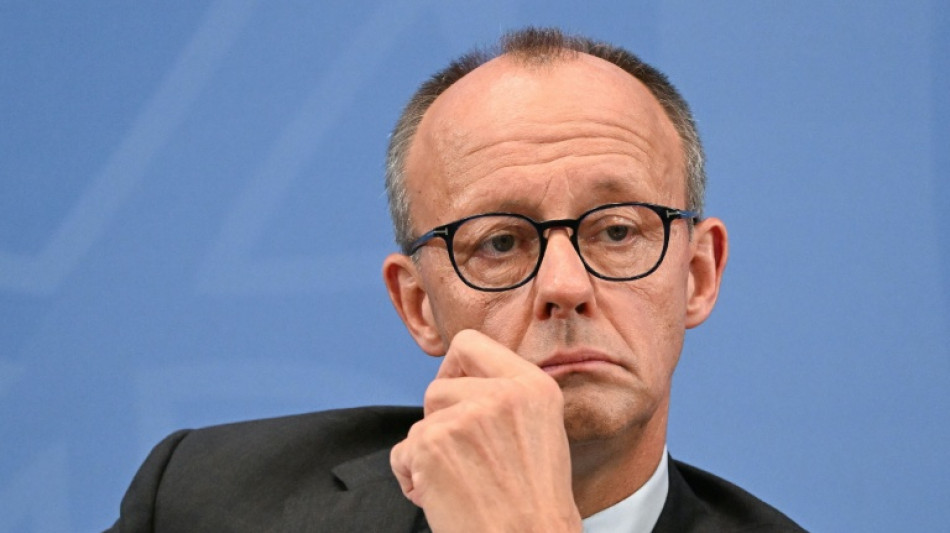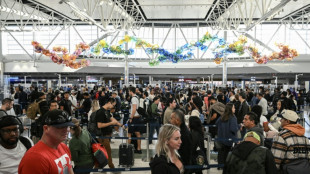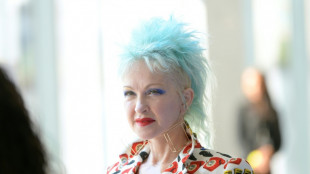
Merz to open Munich motor show as engine row threatens to combust

German Chancellor Friedrich Merz will open the IAA motor show in Munich on Tuesday as debate rages over the EU's target to phase out combustion-engine vehicle sales within a decade.
The country's flagship auto sector has struggled with fierce competition from Chinese electric-vehicle (EV) makers at a time when the German economy has also been plagued by high energy costs and global trade tensions.
While major automakers are working to build up their EV models, many also want to keep selling combustion-engine cars beyond the EU's current 2035 deadline.
Volkswagen CEO Oliver Blume said on Monday that the target was "not realistic", while BMW and Mercedes have also cast doubt on the plan.
US-European auto giant Stellantis, owner of Jeep, Fiat and Peugeot, has also called for a new approach to decarbonisation to avoid job losses.
In Germany the auto sector has already shed more than 50,000 jobs over the past year, according to EY.
Volkswagen is planning 35,000 layoffs between now and 2030 and taking the unprecedented step of halting production at two of its sites in Germany.
Plans for redundancies have been coming thick and fast at Porsche, Audi, and at hundreds of German auto sector suppliers.
"It's a miserable situation for the German economy," car industry expert Ferdinand Dudenhoeffer told AFP.
On the other side of the argument, more than 150 businesses in the EV sector wrote an open letter to EU chief Ursula von der Leyen on Monday urging her to "not row back" on the 2035 target.
When the IAA winds down on Friday, carmakers are expected to have a meeting with von der Leyen in Brussels to discuss how to save the sector.
"We have to move to action quickly, before the end of the year," Stellantis's Europe director Jean-Philippe Imparato said Monday.
- Chinese competition -
American EV pioneer Tesla, which was at the Munich fair two years ago, is notably absent this time as its European sales plummet.
The brand's reputation has suffered among many consumers because of CEO Elon Musk's enthusiastic backing for far-right politicians in several countries, including Germany.
Underlining the competition the German car sector faces, more Chinese carmakers are expected at the fair than ever before.
Fourteen Chinese carmakers -- as opposed to just 10 European ones -- are displaying new models.
And around 100 of the 700 firms taking part overall in the IAA will be from China, an increase of 40 percent from the last show in 2023.
Chinese carmakers there range from BYD, whose sales in Europe rose dramatically in the first half of this year, to GAC, which is taking its first steps in the European market.
BYD on Monday presented its compact Dolphin Surf model, which has been on sale in Europe since May for around 20,000 euros ($23,500).
From later this year it will be produced in a new facility in Hungary, with the company hoping to avoid EU tariffs on Chinese imports.
Volkswagen is trying to fight back with its own models at the more affordable end of the market, the ID.Polo and ID.Cross by VW and the Cupra Raval, all expected in 2026 for a price of around 25,000 euros.
The company wants to achieve a market share of around 20 percent in Europe for smaller electric cars, which would mean hundreds of thousands of vehicles per year.
BMW and Mercedes meanwhile are aiming for the premium end of the market: BMW's iX3 is the first model in its "Neue Klasse" brand with quick recharging and a range of 800 kilometres (500 miles).
Mercedes's GLC is expected next year with a range of 700 km.
Among the other carmakers showing at Munich are Ford, Hyundai, Kia and Renault, which will be presenting its sixth-generation Clio hybrid.
L.Girard--SMC


 London
London

 Manchester
Manchester
 Glasgow
Glasgow
 Dublin
Dublin
 Belfast
Belfast
 Washington
Washington
 Denver
Denver
 Atlanta
Atlanta
 Dallas
Dallas
 Houston Texas
Houston Texas
 New Orleans
New Orleans
 El Paso
El Paso
 Phoenix
Phoenix
 Los Angeles
Los Angeles



